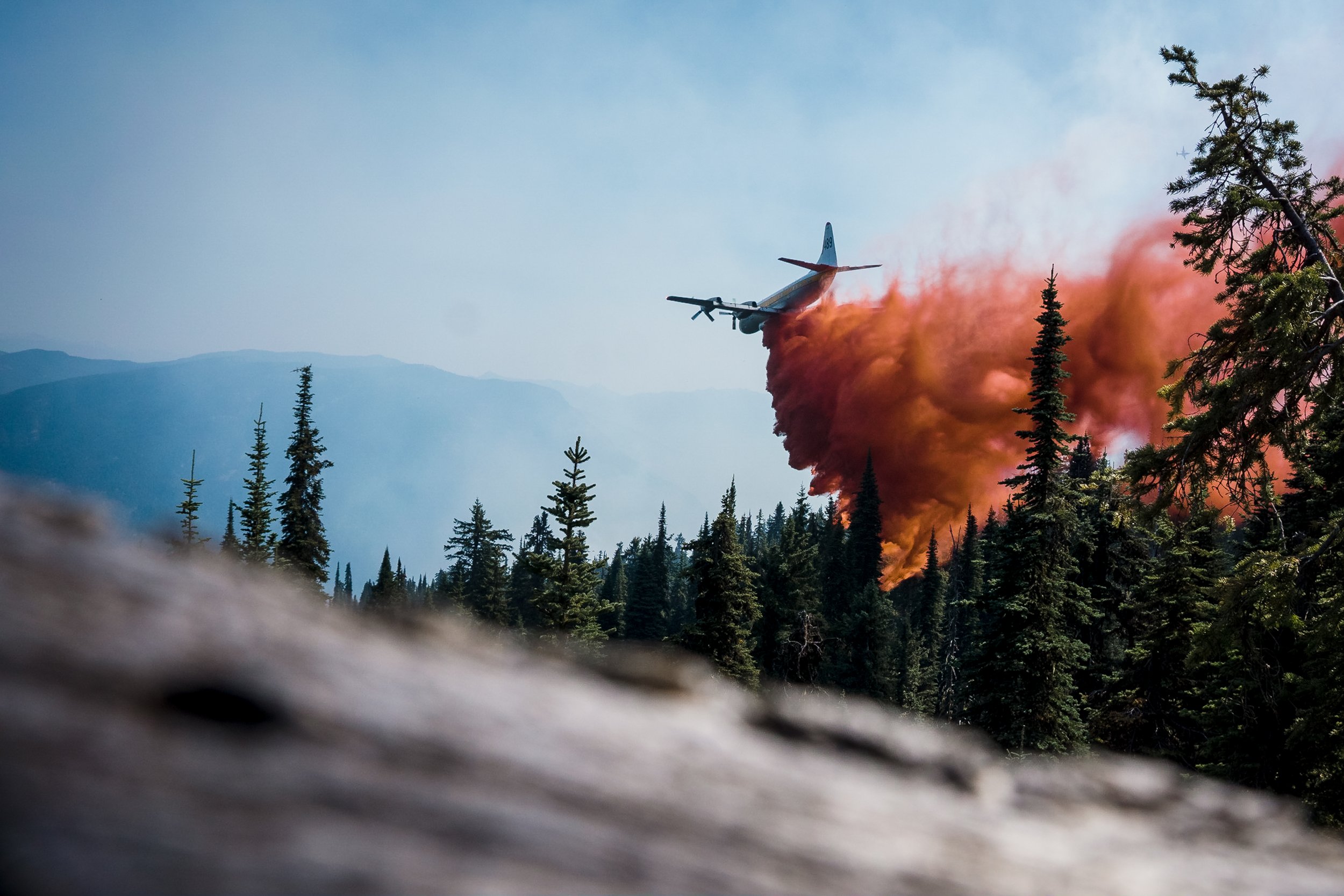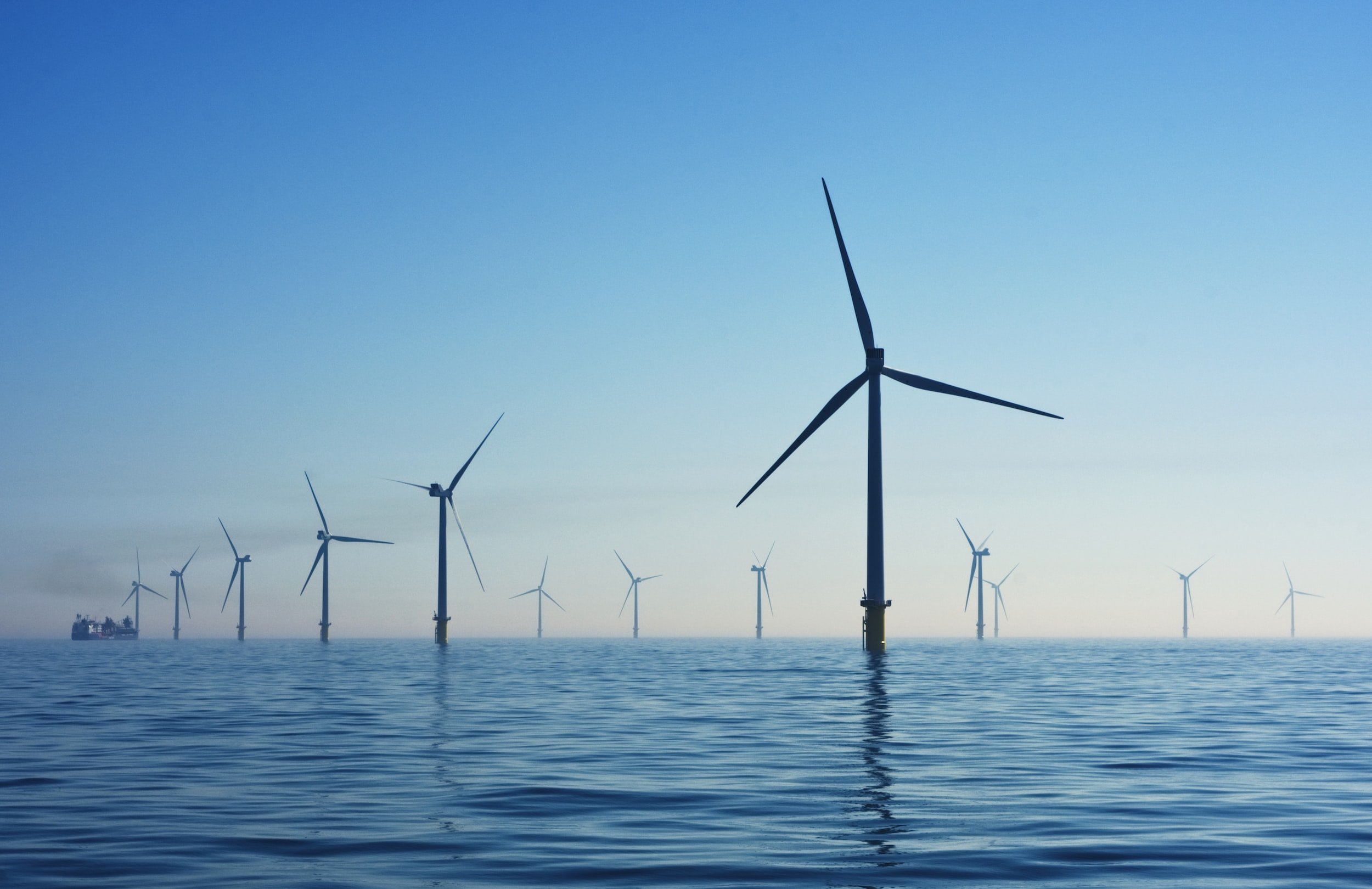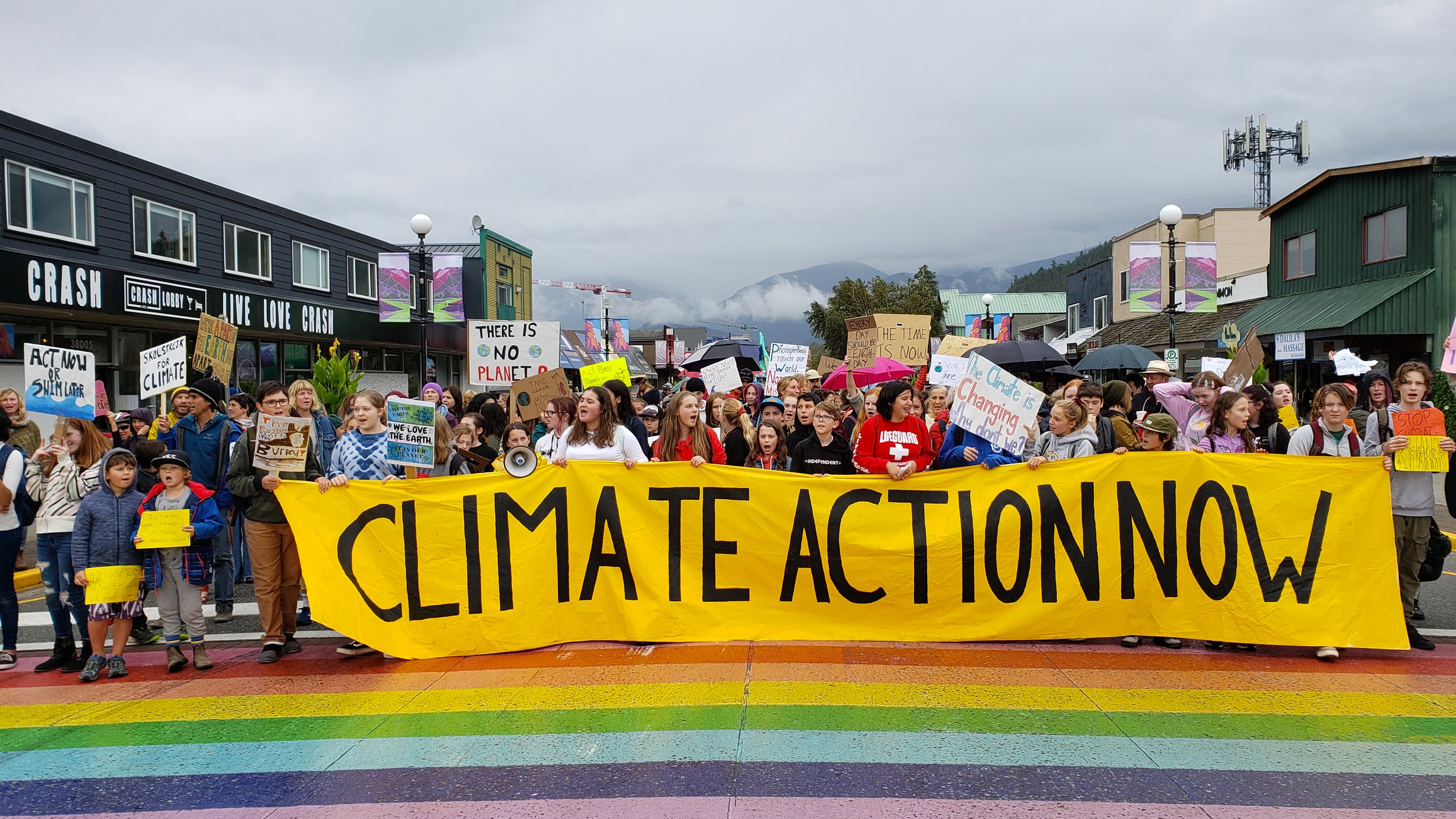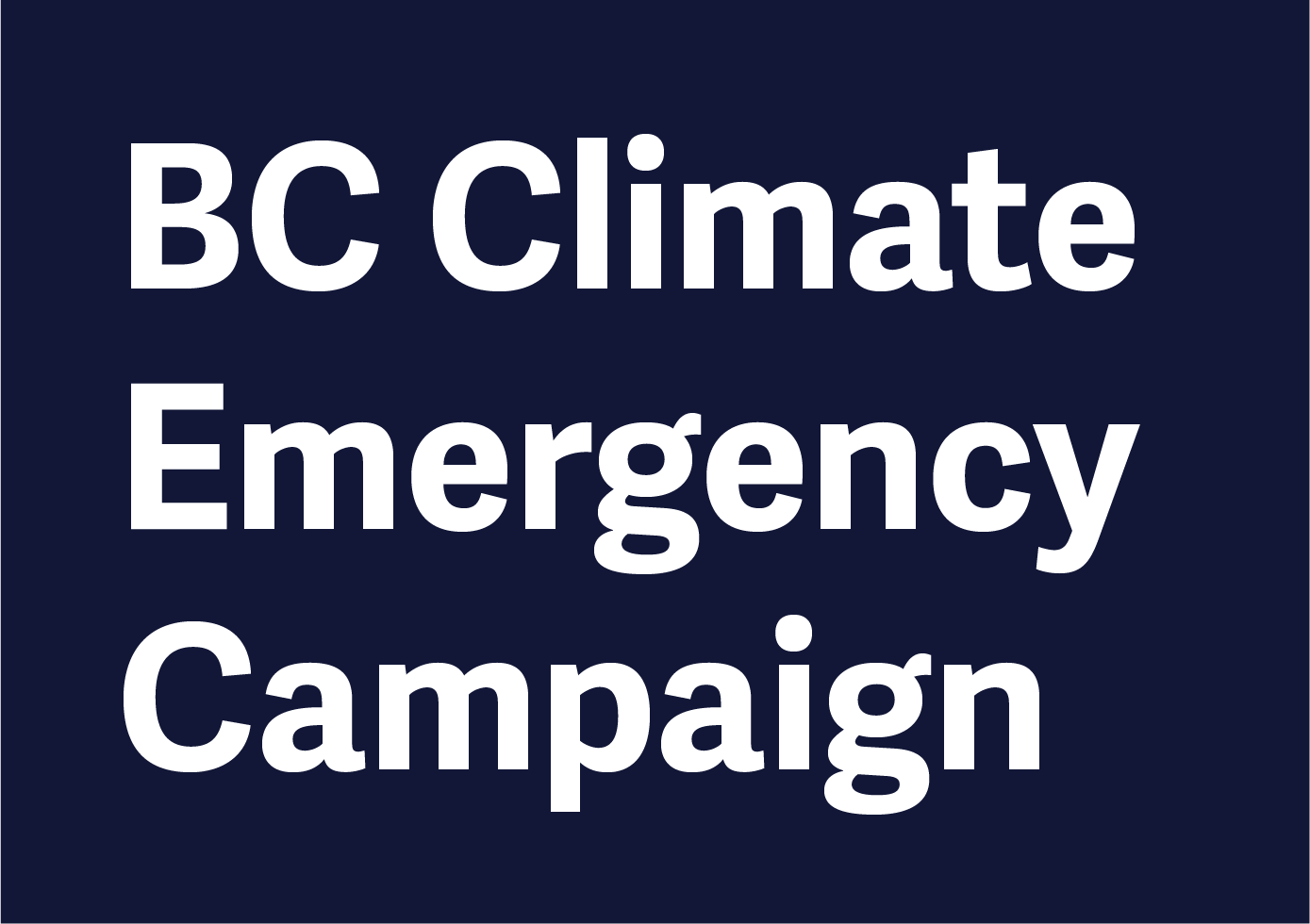
What is the BC Climate
Emergency Campaign?
The BC Climate Emergency Campaign is a group of civil society organizations, anxious about the climate emergency, who are collaborating to increase the ambition of climate policy and action in BC. We are not a formal coalition, but have chosen to work together on a joint campaign.
BC’s greenhouse gas emissions are not decreasing at the speed the crisis requires. We share a belief that BC’s climate plan, CleanBC, needs a profound jolt, one that would transform CleanBC into a genuine emergency plan and force the provincial government to take real action on climate change.
What makes our Campaign unique?
No single group is going to move the government on their own.
There are networks working on specific issues, including fracking and LNG, old growth, transportation, and building electrification.
This joint Campaign is unique in that we are working together with a variety of sectors to urgently shift the imagination and will of the provincial government on climate action and Indigenous sovereignty.

What is the problem we’re facing?
The BC government claims that it is a leader on climate action but our emissions have risen 27% since 1990, and they have effectively remained flat over the last 20 years. The BC government’s lack of meaningful action is demonstrated by the following examples:
BC’s emissions reduction targets do not align with climate science.
Under the Climate Change Accountability Act, BC must reduce emissions by at least 40% by 2030, at least 60% by 2040, and at least 80% by 2050 (below 2007 levels). However, in order to keep global temperature rise below 1.5 C, wealthier countries should reduce emissions by 60% by 2030 and achieve net-zero by 2050 (BC has committed to a net-zero target by 2050, but this is not yet legislated.)
BC’s plan to meet its emissions targets is incomplete and inadequate.
CleanBC and the updated Roadmap to 2030 still do not have all the policies necessary to meet the 2030 emissions reduction target. Those policies that do exist lack sufficient details to ensure they will achieve the reductions they are supposed to. The plan does not mention how BC will achieve its 2040 and 2050 targets. Further, the province is not investing nearly enough in climate programs and infrastructure to meet the urgency of the task, ensure a just transition for workers, and create decent work in a new, low carbon economy.
BC’s support for LNG is exacerbating climate change.
We are not confident that the Roadmap to 2030 will result in a plan that achieves BC’s emissions targets, in large part due to BC’s continued support for the oil and gas industry. LNG Canada (Phase 1) is projected to add 4-6 Mt of CO2e/year when it is operational in 2025. BC will not meet its emissions targets if the LNG industry continues to expand.
Various target dates in CleanBC are far too distant and the plan relies too heavily on passive incentives.
The ZEV mandate year in CleanBC, requiring that all new vehicles be zero-emission, is 2035 – lacking adequate ambition. The date by which all new homes and buildings must be net carbon-zero is 2030 – 7 years too late. The buildings plan hinges on voluntary rebates for which the take-up rate is abysmal, while thousands of new homes each year continue to tie into gas lines.
BC is failing to address its forest emissions.
BC’s forests are no longer a carbon sink; in fact, in 2018, they emitted more than three times as much CO2e as the rest of the BC economy. However, CleanBC lacks policies to address these emissions, despite the fact that the government has effective tools at its disposal to reduce emissions from industrial logging and via improved forest management.
What is the solution?
The BC government will only undertake action that meaningfully responds to the scale and urgency of the climate crisis if it is put under sufficient public pressure to do so. This means pressure that threatens their popularity and reputation as a “climate leader.”
Generating this pressure requires the mobilization of the NGO community, Indigenous leaders and organizations, climate experts, academics, workers, campaigners, activists, faith communities, businesses, seniors, and youth around the same message: “CleanBC is inadequate in the face of the climate crisis. BC must step up to the climate challenge. We need an emergency plan.”
Ultimately, our message must become one the BC government cannot ignore.

Global climate action strike in Squamish, September 2019
Photo: Tracey Saxby
